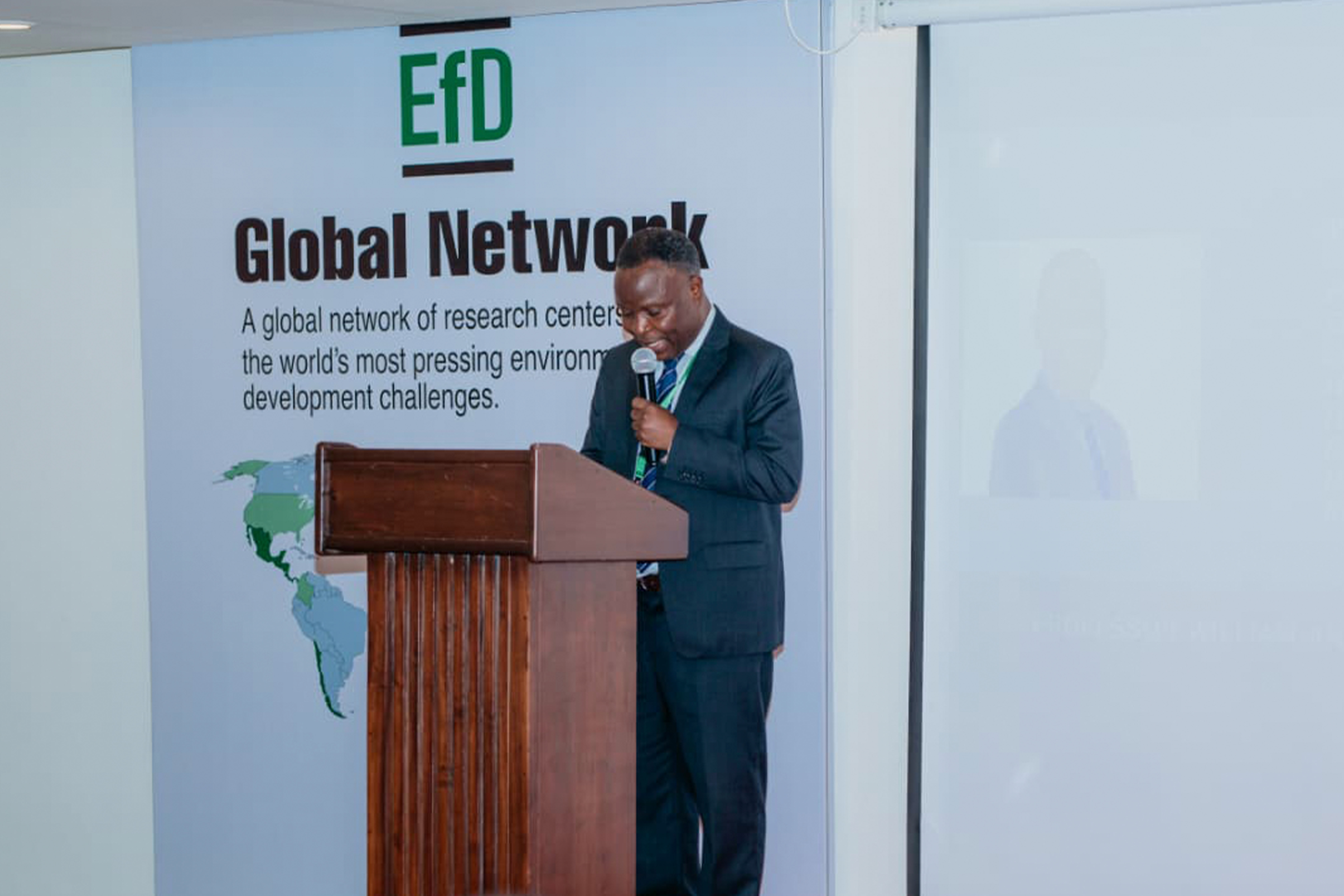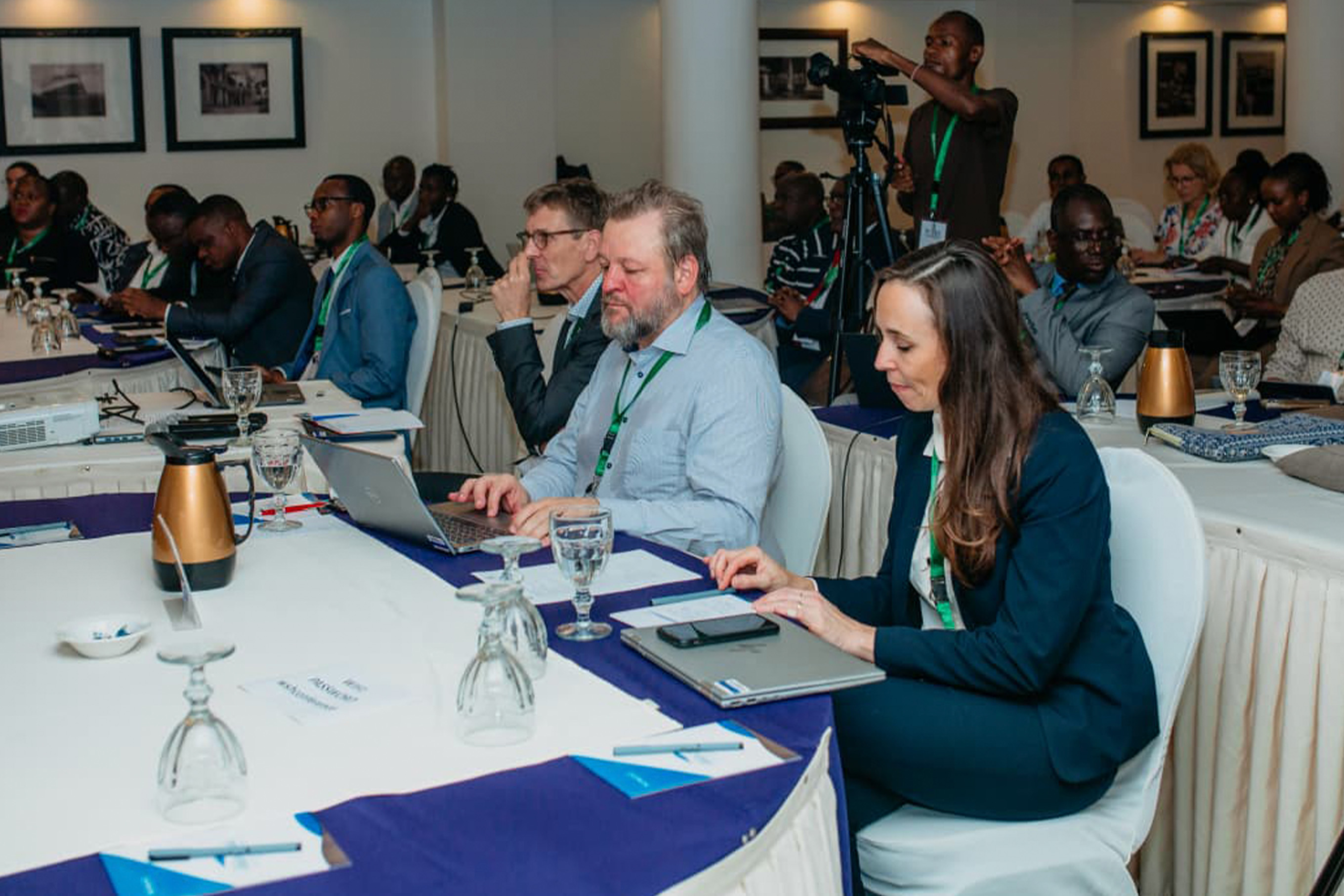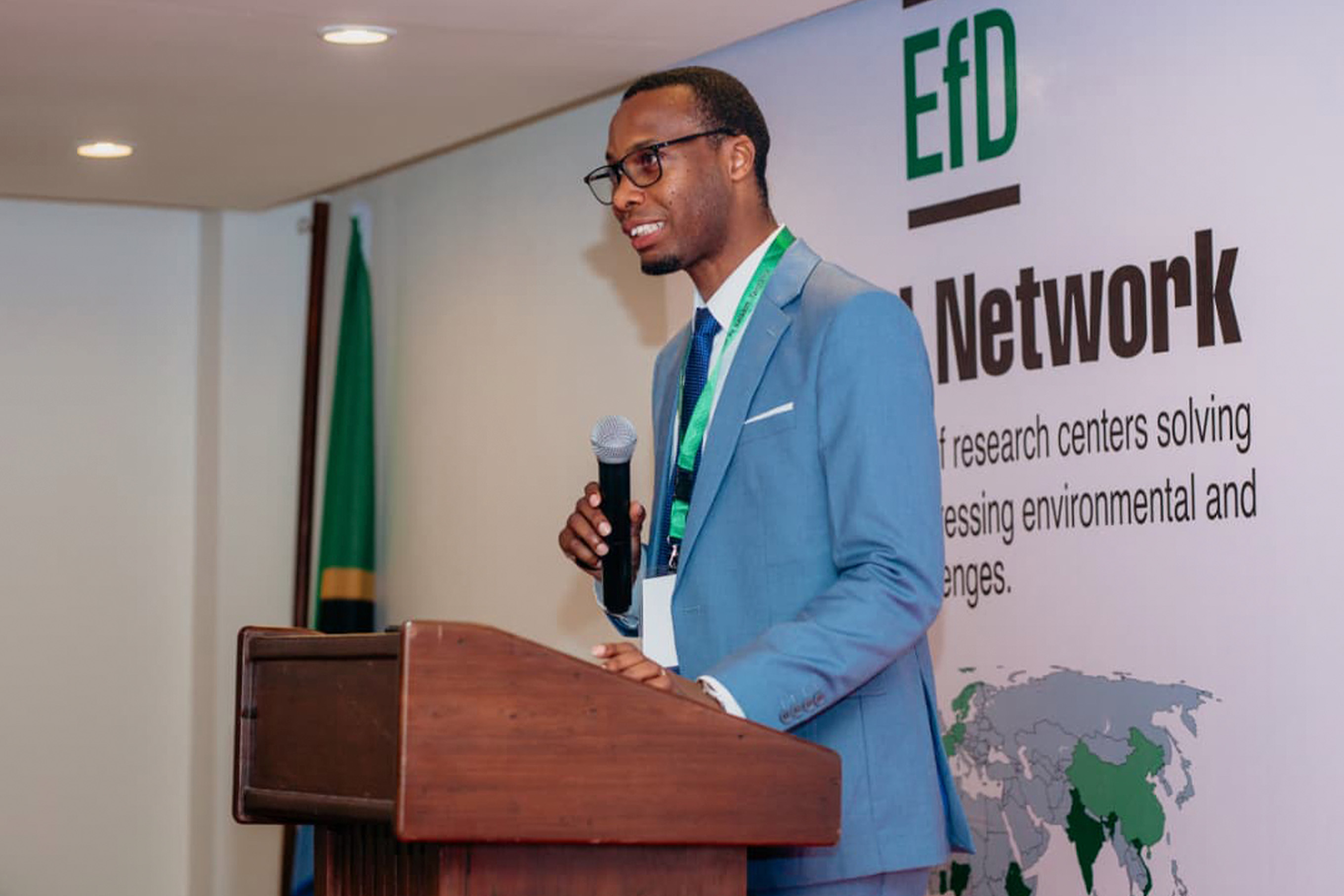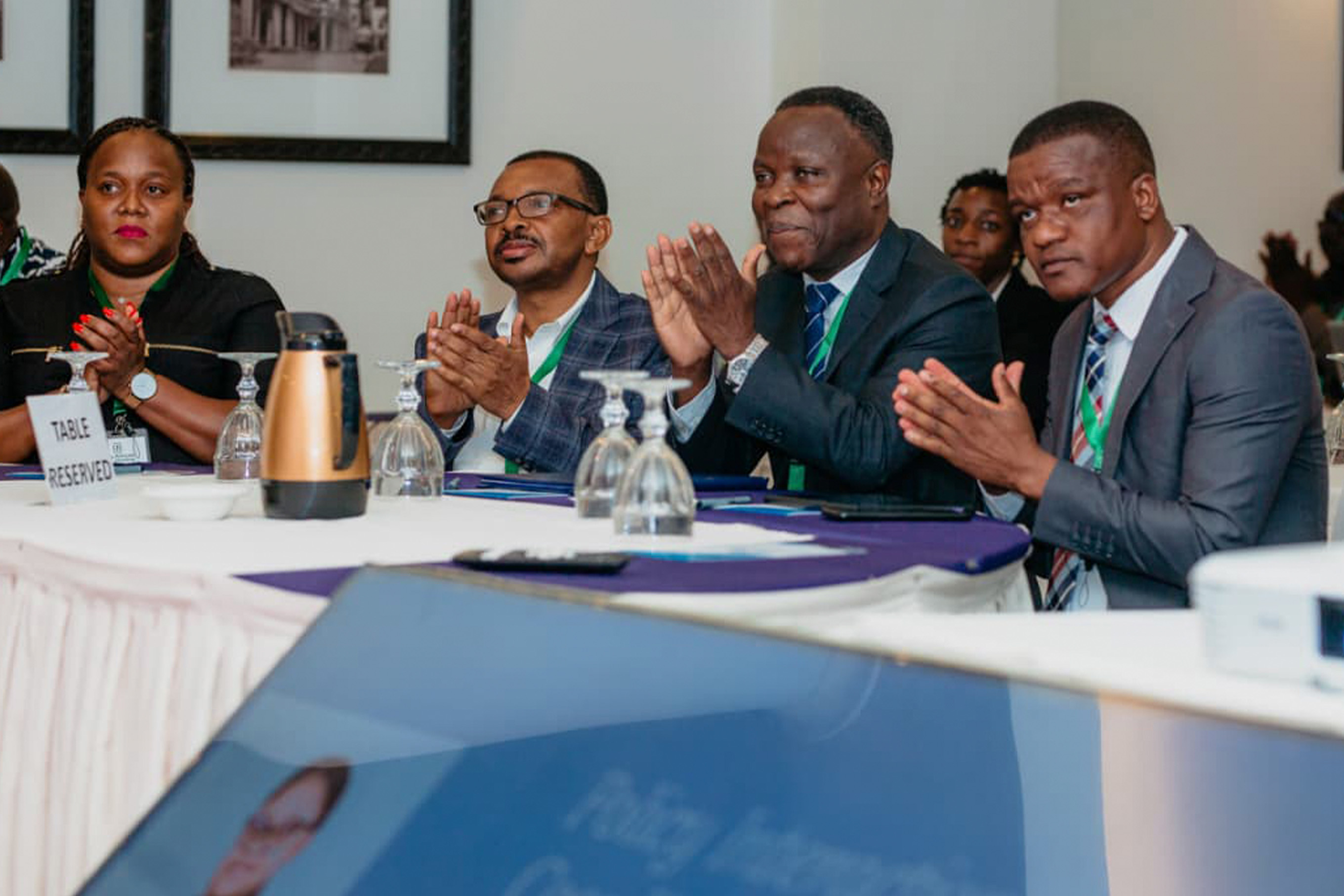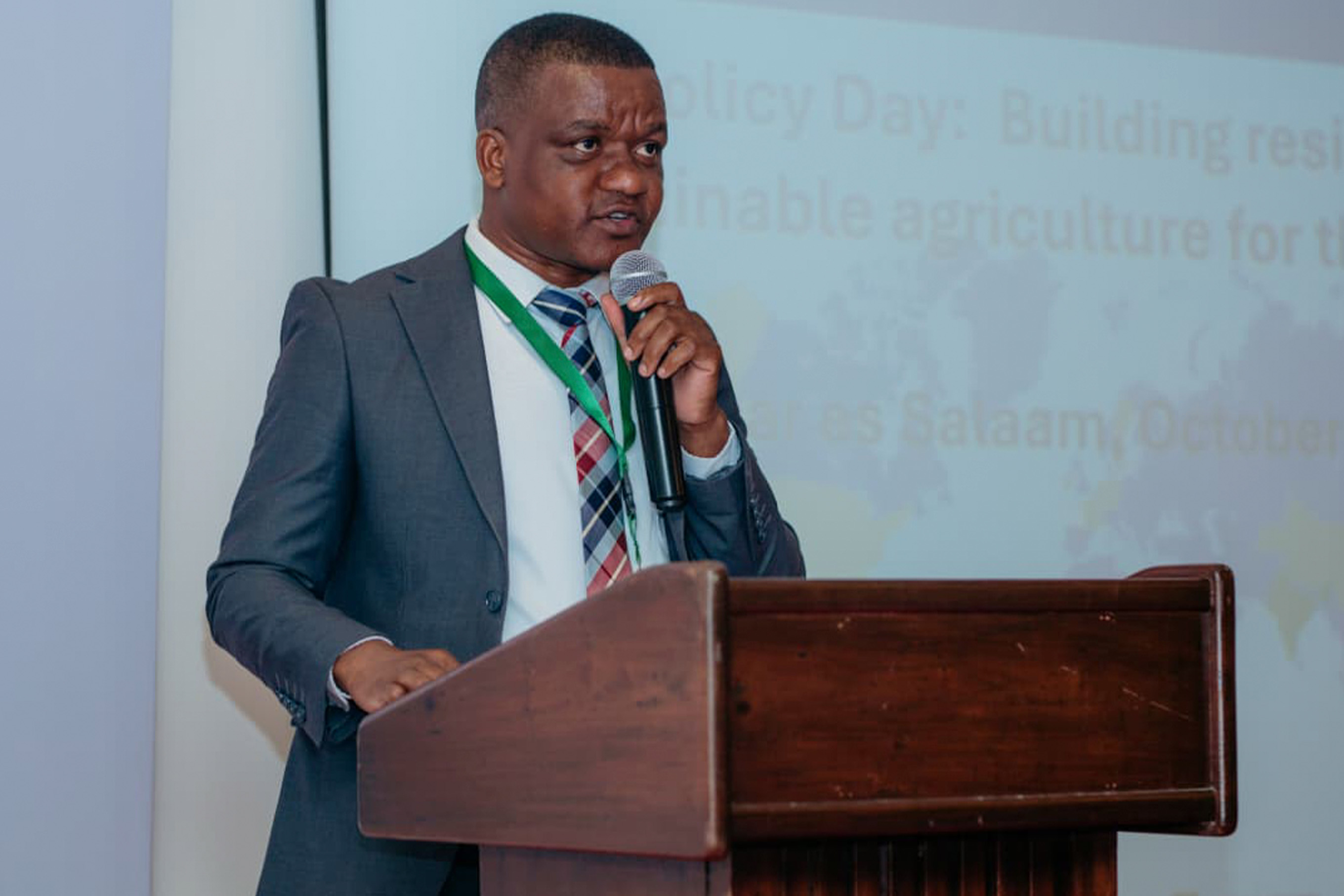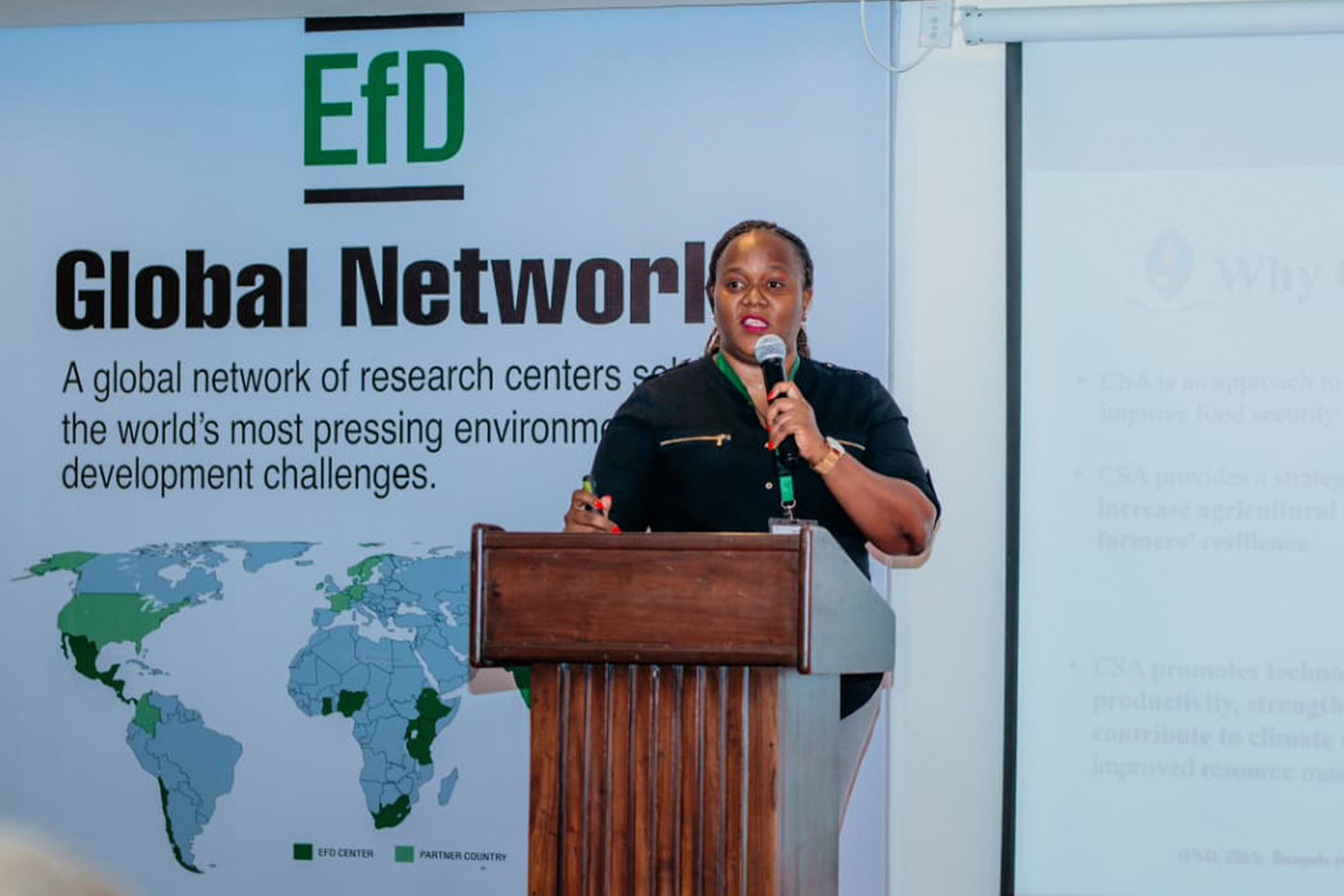Tanzania Charts a New Path for Sustainable Agriculture at EfD Policy Day 2025
By Jackson Isdory, CMU
The University of Dar es Salaam (UDSM), through its School of Economics, has reaffirmed its leadership in shaping evidence-based agricultural policy following the successful hosting of the 2025 Environment for Development (EfD) Policy Day at White Sands Hotel, Dar es Salaam on 15 October 2025.
Held under the theme “Building Resilient and Sustainable Agriculture for the Future,” the event brought together senior policymakers, researchers, and development partners to explore practical strategies for transforming Tanzania’s agriculture amid the pressures of climate change and global market shifts.
Organised under the EfD Tanzania Centre as part of the 19th EfD Annual Meeting, the Policy Day positioned Tanzania at the heart of Africa’s dialogue on sustainable agricultural transformation.
Opening the event, UDSM Vice Chancellor Professor William A. L. Anangisye commended the School of Economics for steering national and regional policy conversations through research.
“This flagship event is not just about sharing research; it is about transforming it into policy and practice. Through the EfD Tanzania Centre, the University continues to provide credible, evidence-based knowledge that supports national development priorities, sustainable agriculture, and sound environmental policy”, said Prof. Anangisye.
He reaffirmed the University’s commitment to advancing the EfD Tanzania Centre as a leading institution in sustainable development, environmental economics, and natural resource management.
In his welcoming remarks, Dr. Martin Chegere, Director of EfD Tanzania and Senior Lecturer at the UDSM School of Economics, underscored the urgency of addressing the vulnerabilities facing agriculture.
“Agriculture remains Tanzania’s economic backbone, yet it faces intensifying challenges from climate change, land degradation, and fluctuating global markets. This Policy Day bridges knowledge and governance where research guides strategic decisions to ensure our agriculture remains productive, resilient, and sustainable for generations to come”, he noted.
Vision 2050 and the future of agriculture
Representing the Ministry of Agriculture, Mr. Pastory Ndalahwa delivered a keynote address titled “Agriculture in the 2050 Vision: Resilience, Innovation, and Partnerships”. He outlined the government’s ambition to expand the sector’s GDP fivefold to US$100 billion by 2050, supported by an Agenda 2030 roadmap targeting 10% annual growth.
“The transformation we envision requires partnerships, innovation, and inclusive investment. By 2030, we aim to mobilise US$5.5 billion to modernise extension services, expand agro-processing, and empower women and youth as drivers of innovation. Only through collective action can we achieve an agriculture that is both profitable and sustainable”, said Mr. Ndalahwa.
In the second keynote, Dr. Innocencia John from EfD Tanzania, who is also a Senior Lecturer in the UDSM College of Agriculture and Food Technology (CoAF), highlighted the potential of indigenous crops in advancing climate-smart agriculture. Her research revealed that nearly half of Tanzania’s farmland could support drought-tolerant indigenous crops without the need for additional irrigation.
“Indigenous crops are naturally adapted, climate-resilient, and socially inclusive. They present a sustainable pathway to productivity that aligns with both environmental stewardship and community needs”, explained Dr. John, who is Agricultural economist.
Ms. Anna Tjärvar, Counsellor at the Embassy of Sweden, reaffirmed her government’s support for Tanzania’s sustainability agenda through research and innovation partnerships. “The collaboration between UDSM, EfD Global, and our development partners illustrates how research can drive tangible transformation”.
Representing the Dean, UDSM School of Economics, Dr. John Mtui commended the participants’ active engagement, urging a transition from dialogue to implementation.
“Our task now is to translate insights into measurable policy actions,” he said. “The School of Economics remains committed to research that informs national policy and drives inclusive, evidence-based development”, said Dr. Mtui.
Policy Pathways for Transformation
The Policy Day featured three thematic sessions that generated actionable recommendations for embedding sustainability in Tanzania’s agricultural systems.
Under the theme “Climate-Smart Agriculture and Environmental Stewardship,” experts called for stronger research-extension linkages, expanded agroforestry, and innovative financing for climate-smart practices.
The session on “Carbon Markets, Green Finance, and Fiscal Incentives” urged the development of a comprehensive climate finance framework beyond REDD+, improved monitoring and verification systems, and fair benefit-sharing mechanisms.
Meanwhile, the theme “Inclusive Agri-Economies and Livelihoods” emphasised gender-responsive reforms in land and credit access, digital technology integration, and the creation of a national Resilience Fund to link social protection and climate adaptation.
EfD Tanzania, based at UDSM’s School of Economics, continues to serve as a bridge between academia and policymaking, aligning its work with Tanzania’s Vision 2050, UDSM’s Vision 2060, and the UN Sustainable Development Goals.
Its mission is to ensure that research translates into real impact that uplifts livelihoods, protects our environment, and steers Tanzania toward sustainable prosperity.


